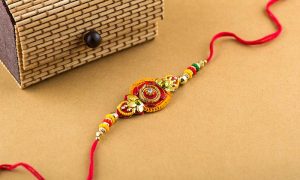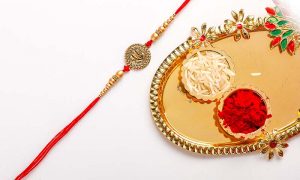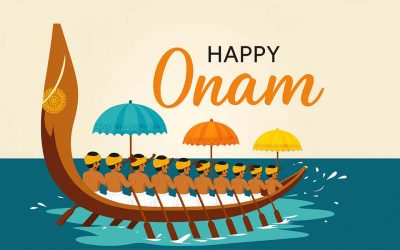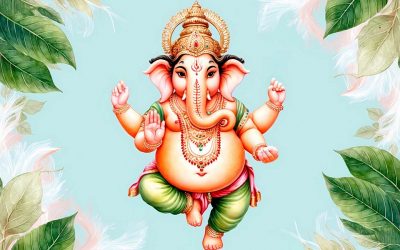Raksha Bandhan: It’s Not a Thread, It’s a Feeling
Raksha Bandhan. Just saying the name brings back a rush of memories: that early morning excitement, carefully tying the rakhi, the big smile on your brother’s face (or his awkward “thanks”), and the hunt for the perfect gift. But the festival, literally “the bond of protection,” is much more than a ceremony of sweets and strings. It’s about laughter, love, promises made for life, and occasionally, a little blackmail for better gifts!
Let’s take a stroll down what Raksha Bandhan is really like today. Its history, its meaning, and how it’s celebrated worldwide.
A Festival Based on Love (with a Little Fun)
Essentially, Raksha Bandhan is a brother-sister relationship celebration. A sister typically ties a rakhi, a sacred thread, on her brother’s wrist. The brother promises to protect her and usually rewards her with a gift to confirm the deal.
But now the term has widened. Rakhi is not between siblings any more. Friends, cousins, even neighbours who have a sibling-like relationship wrap rakhis and give one another. Some girls even wrap rakhis on their sister-friends, showing that love has no bounds.
And come on—presents are part of the fun! While money envelopes are still seen, today’s siblings splurge on personalized treats: spa days, silly shirts, photo albums with their names on them, gaming accessories—name them.
A Glimpse into the Rituals 
On Raksha Bandhan day (usually in August on the full moon day of the Hindu month of Shravan), the members of the family arrive in new attire. The sister prepares a special thali (a specially decorated plate) with the rakhi, sweets, vermilion (kumkum), and even a small diya (lamp).
She does a little ritual (aarti), puts a tilak on her brother’s forehead, ties the rakhi on his wrist, and gives him sweets. The brother, in turn, presents her with a gift and says the best he can do (sometimes a plain “stay happy” if he is not the romantic kind).
For those who are unable to move around, rakhis and presents cross cities and nations in the form of mail, video calls, and sometimes even same-day delivery services. Distance may separate people, but love is stronger.
Stories That Make Rakhi Magical
As with most Indian festivals, Raksha Bandhan does have some mythological stories to its name. And let me tell you—one’s straight out of an epic!
Krishna and Draupadi: Perhaps the most popular tale is the one where Draupadi tears a strip from her sari to bind up Krishna’s injured hand. Touched by her care, Krishna promises to defend her forever. Later, when Draupadi is insulted in court, Krishna saves her in a miraculous manner.
Lakshmi and King Bali: When Lord Vishnu vows to stay in King Bali’s palace after granting the king a wish, his wife Lakshmi is heartbroken. So, she rakhies Bali’s wrist and he is her brother thereafter. She asks him to set Vishnu free in exchange. He does. That’s sibling love and negotiation at its best!
Rani Karnavati and Humayun: In a symbolic historical move, Chittor Queen Karnavati sent a rakhi to Mughal Emperor Humayun, requesting him to safeguard her from an invasion. Fulfilling his promise, Humayun rushed to her rescue, proving that Rakhi can even cross political boundaries.
Witnessed Across Religions and Borders

While it is a Hindu festival of origin, Raksha Bandhan is celebrated by individuals of all communities now. In Jainism, priests offer rakhis to their believers. In Sikhism, the same is practised in the form of “Rakhardi.” Now, it is no longer religious—it’s all about bonding.
Globally, Rakhi has taken a position in households far beyond India:
- In Nepal, Rakhi is also celebrated together with “Janai Purnima,” when men replace their sacred strings and sisters also wear rakhis.
- In Mauritius, all people come together from all cultures, each contributing a breathtaking multicultural flair.
- In Thailand, the spirit of Rakhi is blended with the Loi Krathong festival, and the festivities become even more beautiful and symbolic.
- In Britain and America, Indian individuals follow the tradition, even inviting other friends of the community to participate in the celebration.
Modern Rakhi: Tradition to Trend
As with all else in the world today, Rakhi has also changed. It’s not about the ritual anymore—it’s about making memories. Sisters and brothers now take the extra effort to get gifts that are not just sentimental but also picture-perfect.
Instead of “Best Brother” coffee cups or chocolate bars, people are now coming up with new ideas:
- Memory boxes filled with vintage photographs, vintage treats, and community playlists.
- “Open When” letters for situations when your brother or sister needs a laugh, advice, or just to feel loved.
- Personalized memes or comics of your funniest shared experiences.
Why is Raksha Bandhan Special?
It’s not really about how much it costs. It’s about knowing the other guy inside out. About that in-joke that everyone else misses. About standing up for one another even when you’ve been at each other’s throats all week. It’s the promise—expressed or implied-that however far apart you and each of you get, or how much life itself also shifts, your brother or sister will remain behind you. And in a world, that’s always looking ahead, this little string reminds us to stop, smile, and say, “I’m here for you.”
Raksha Bandhan is an emotional festival, wrapped in love, and capped with laughter. Whether you are a senior sister who still regards her brother as a messy child or a junior brother who wishes to prove that he is mature enough to live up to his sister’s standards, this festival gives you that one additional reason to bond, reflect, and treasure. So, this year, tie more than just a rakhi. Tie a memory. Tie a joke. Tie a promise. And if you’re feeling generous, toss in that gaming mouse or spa hamper too. Happy Raksha Bandhan to all siblings out there—biological or adopted. Wishing your bond unbreakable, your gifts special, and your love everlasting.

